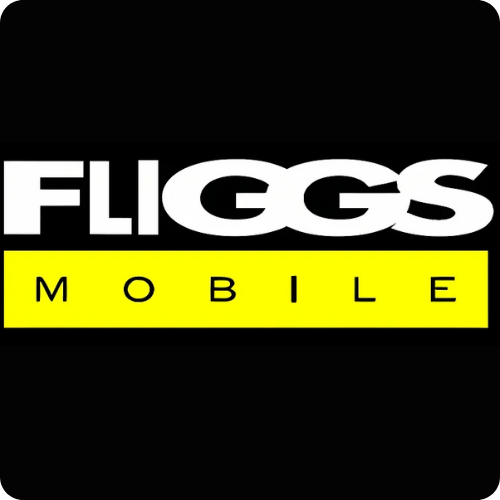
Fliggs Mobile
Fliggs Mobile is a digital-first, Web3-enabled mobile virtual network operator (MVNO) that aims to bridge the gap between telecommunications and financial services. Its core service is providing flexible, no-contract mobile plans that run on T-Mobile's nationwide 5G network. These plans, managed entirely through the Fliggs Mobile app, include features such as eSIM activation, international roaming passes, and data boosters.
It also features Web3 integration features including a non-custodial digital wallet built into the app. This wallet enables a loyalty program that rewards users with monthly cashback in Bitcoin or USDC on their service fees.
Fliggs Mobile is built on Hedera's distributed ledger technology, which is used to issue a Decentralised ID (DID) to every user upon activation. This gives customers sovereign control over their digital identity and personal data. The non-custodial wallet also leverages Hedera for its security and functionality, enabling secure cryptocurrency payments and the management of rewards. This integration is supported by The Hashgraph Association, which has provided both funding and technical support to pioneer this convergence of telecom services and decentralised technology.
Project Information
Related Projects

ValueNature is a South Africa-based organization working to create a new class of nature-based commodity credits. The company's mission is to accelerate the recognition of nature's value by creating a transparent and efficient market for biodiversity and natural carbon credits.
ValueNature's core service is the facilitation of nature-based investment projects. They are actively developing projects across the Global South that are designed to generate both biodiversity and carbon credits. The company's methodology involves using a combination of on-the-ground sensor technologies and remote sensing data to measure and verify the positive impacts of these projects on local ecosystems. The goal is to create a robust and evidence-based system for quantifying and valuing nature, with a commitment to ensuring that 80% of the revenue from the sale of credits goes back to the local custodians of the land.
ValueNature is building its platform on the Hedera Guardian, an open-source toolset for creating and managing digital environmental assets. This allows for the tokenization of their biodiversity and carbon credits, creating a transparent and auditable record of their entire lifecycle.

METAVRSE is a technology company advancing e-commerce through its proprietary, web-based 3D development engine. The platform enables brands to create, manage, and scale immersive virtual worlds and interactive product showcases accessible across all devices without requiring special downloads. This focus on accessibility and high-fidelity graphics positions METAVRSE as a key provider of infrastructure for the next generation of Web3 commerce.
The company's flagship product, TheMall, is a photorealistic virtual shopping center that utilizes the Hedera Token Service (HTS) for minting assets. Within its virtual spaces, brands can build 3D storefronts stocked with digital products and services secured on the Hedera blockchain network. For example, virtual real estate, such as floors and parcels within TheMall, is delivered and owned as NFTs on the Hedera network.
METAVRSE aims to simplify 3D spatial space design and development in the same way Canva made digital art and graphic design accessible for creative users. It has a slate of Fortune 500 clients including Microsoft, MasterCard, JP Morgan and numerous others.

KPAY is a fintech company that provides a comprehensive suite of payment processing and financial management solutions for businesses. Its core service is its unified pay-in and pay-out platform. For pay-ins, the company offers a range of solutions, including smart point-of-sale (POS) terminals, QR code payments, and online payment gateways that support a wide variety of payment methods. For pay-outs, KPAY provides a business account with features for managing expenses, paying bills, and making international remittances.
KPAY's platform is a comprehensive financial and operational hub for merchants. The pay-in solutions are a key product, featuring Smart POS Terminals that accept over 12 major payment methods, including credit cards, mobile wallets, and QR code payments. This ensures a smooth checkout experience for customers.
For business operations, the KPay Business Account enables merchants to manage all their expenses in one place. This includes end-to-end bill payment, payroll management, and fast, affordable international remittances in multiple currencies. The platform also offers a suite of over 100 operational tools, such as industry-specific POS system integrations, CRM and loyalty systems, and data-driven financing solutions to help businesses grow.

Ledger is a Paris-based digital assets security firm. Its core products are its hardware wallets, most notably the Ledger Nano series. These devices are designed to store private keys in a secure, offline environment, protecting them from online threats.
Ledger also provides the Ledger Live application, an all-in-one platform that allows users to manage digital assets, buy, sell, and swap cryptocurrencies, and access a wide range of DeFi and Web3 services. For institutional clients, Ledger Enterprise provides a comprehensive, customizable infrastructure for safeguarding digital assets at scale.
The Ledger Nano S Plus and Nano X hardware wallets support Hedera’s HBAR token, allowing users to securely store their assets. Through the Ledger Live app, users can create a Hedera account, manage their HBAR, and interact with the Hedera ecosystem. This integration also extends to staking, as users can connect their Ledger device to third-party wallets such as HashPack to participate in HBAR staking.
